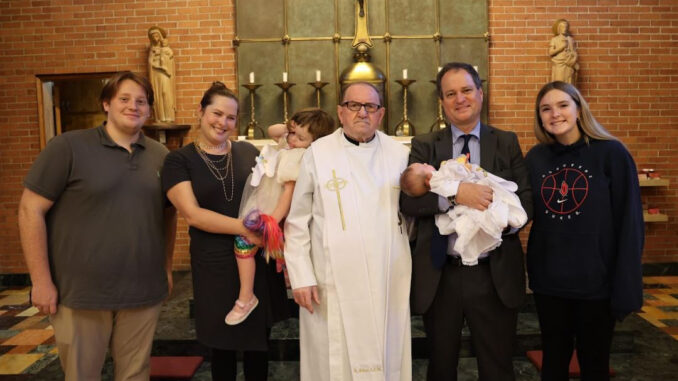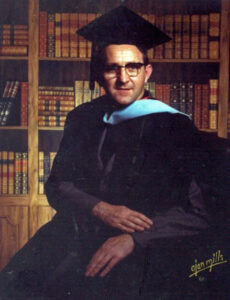
Megan Trotter | News Editor
The Rev. Sean Hogan born in Limerick, Ireland in 1941 never expected to end up at a small Catholic University 3,345 miles away.
One of eight siblings, he served as a missionary and was ordained and living in Kenya when he learned that Duquesne was offering its campus for any Spiritan to attend school and get a degree.
In July, fourty-three years after arriving on the Bluff, Hogan retired.
Hogan moved to the U.S. and began attending school at Duquesne. While in school, the cardinal Archbishop of Nairobi asked him to take a job raising money for him and so he held the position for about 20 years.
He then graduated from Duquesne in 1976; however, his time at Duquesne was just beginning.
“I never expected to be at Duquesne. The problem is they asked me to come in. So, I came in. I was still doing the mission appearance for Nairobi at the same time,” he said. “I enjoyed it and eventually decided to change provinces from the Irish province to the American province.”
Starting his career in 1980, only a few years after graduation, Hogan was appointed as associate director of development. Then in 1982 he became the first director of the Office of International Education.
Hogan became Duquesne’s executive Vice President for Student Life in 1991. In addition to being the longest position Hogan held (almost 26 years) he also remembers it as his favorite because of all the one-on-one contact with students.
Director of Campus Ministry and University Chaplain Bill Christy saw how much care Hogan put into his relationship with Duquesne’s students. Christy said that Hogan would often look through student’s accounts before meeting with them to gain insight into their backgrounds.
“Father Hogan had a great impact on Duquesne’s campus,” Christy said. “Almost every student organization that the leadership had to meet with him when he was vice president of student life.”
During his time as Vice President of Student Life, Hogan had 13 different divisions reporting to him. Hogan describes this time as “hectic” but enjoyable.
In 2014, Hogan took over as the first president of the Duquesne Scholarship Association.
“Duquesne is very expensive as you know. When I was Vice President for Student Life, I came across the students who were not eating or going to be dismissed because they hadn’t paid their bills or whatever. So, I developed two scholarships, one in my name and one in my parent’s name, which wasn’t enough, but it helped several students. I enjoyed that,” Hogan said.
While holding this position, Hogan shared that he had a lot of scholarship requests from international students because they weren’t allowed to work.
“You know, many students came, and they had $20,000 [in] debt. I wasn’t able to give them $20,000 because I’d be wrecking my budget,” Hogan said. “As I grew the job, they came to me every semester to help them pay their extra costs.”
Adam Wasilko, Associate Vice President of Student Life said that Hogan has been a major figure in his life for two decades.
“He was my boss and became a trusted mentor during this time. He also married my sister and brother-in-law, baptized my godchildren, blessed my house and was there for my grandmother’s funeral,” Wasilko said.
Attendees at Hogan’s retirement party, which was held in the student union ballroom, came from all over the world, including different countries. Many of them were Duquesne alumni and had been contributing to his scholarship fund.
“I was amazed that they came in and wanted to congratulate me and say, ‘why are you retiring?’”
Since his retirement Hogan has visited his family back in Ireland and has been enjoying reading in Trinity Hall.
Christy said that despite Hogan’s retirement he continues to inspire the other Spiritans living there.
“His participation in the community life, his participation in the prayer life of the community, is something that is grounding something that is of great benefit to the rest of the community. It inspires us. It reminds us that we’re not here primarily because I’m a vice president, or I’m a professor, or I’m an administrator or I’m an advisor. Having him continue to embrace his spirit life and his priesthood life in the community, says, ‘Hey, this is why we’re all here,’” Christy said.
Hogan Dining Hall, named after Hogan himself, continues his legacy as Duquesne as students make use of the newly renovated space for mealtimes.
“Duquesne is a community, and a major contributor to that feeling is Father Hogan,” Wasilko said.

